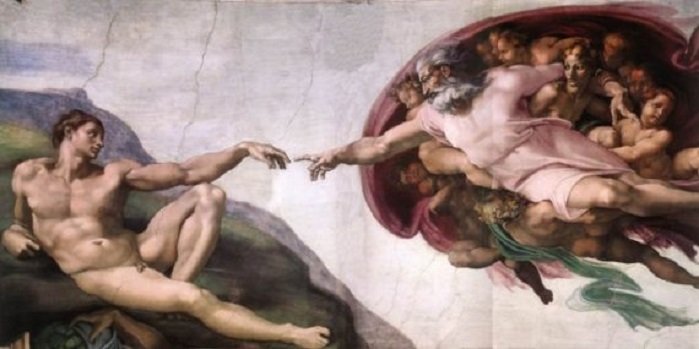The question about the ultimate cause of the historical movement. In the development of philosophical-historical thought, three major solutions to this issue can be identified. The first one we encounter in the so-called theological concept.
THEOLOGICAL CONCEPT. This concept has its origins since antiquity, and its basic ideas are sealed in the various writings of the Old Testament and the New Testament in the Bible. The concept of this concept consists in postulating God not only as the creator of the world and man, but also as a direct or an indirect subject of human history. As it is known, the beginning of human history in this concept is associated with the expulsion of Adam and Eve from the Garden of Eden for the sake of their sin. From here, man becomes an autonomous being. His expulsion from paradise and leaving him to take care of himself is, however, oriented not so much to his earthly life as to his re-entry into the kingdom of God after the final redemption of sin.
What is more, beyond this orientation, man is not left entirely to himself; on the contrary, he is constantly under God's observation and is often punished when he is diverted from the foregoing. That is the question of the flood, for example. By which the creator destroys the disappointed men, leaving only Noah's family to last. This is the case with the demolition of the Tower of Babel and the separation of languages. Similar is the situation with the burning of the cities in Sodom and Gomor, as well as sending the land of Christ to the mission to help mankind to deliver the sin. Except for the direct interference of God in the history of the earth, the Bible also contains a number of reports of its indirect, indirect or indirect interference with it.
This is done through the special benevolence that feeds it to certain persons: Noah, Abram, Isaac, Joseph, and so on. to which he reveals his secrets and through which he realizes his goals. These godly elected and beloved stand out as means by which God corrects the course of human history in the direction desired by him. The theological philosophical-historical setting gains its mighty development in the doctrine of Aurelius Augustine for the two cities: the heavenly and the divine, respectively the two types of people: the earthly and the divine cities. For Augustine the people of the city of God are those who live with a god in their hearts, with the good and do not feed any illusions that they can achieve eternal life without it.
Again, the people of the holy city are those who live in the words of Augustine not by God (or God), but by man (the evil one), and who are utilitarian, aspire here to the earth to attain eternal life through the accumulation of wealth, a violent pursuit of a career, etc. regardless of price.

and about this began a variety in new testament with the oportunity of entry in sky, accepting to Christ like saver, and loving to people in world and to God first that all that exist
You got a 3.77% upvote from @booster courtesy of @godflesh!
NEW FEATURE:
You can earn a passive income from our service by delegating your stake in SteemPower to @booster. We'll be sharing 100% Liquid tokens automatically between all our delegators every time a wallet has accumulated 1K STEEM or SBD.
Quick Delegation: 1000| 2500 | 5000 | 10000 | 20000 | 50000